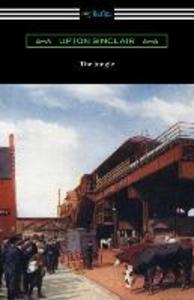
Zustellung: Sa, 11.01. - Do, 16.01.25
Versand in 2 Wochen
VersandkostenfreiBestellen & in Filiale abholen:
First published serially in 1905, "The Jungle" is American journalist Upton Sinclair's dramatization of the harsh working conditions for and exploitation of immigrant workers in industrial cities like Chicago during the early part of the 20th century. Sinclair spent seven weeks prior to publication working 'in cognito' in the meatpacking plants of the Chicago stockyards gathering information for the novel. The work is principally concerned with Jurgis Rudkus, a Lithuanian immigrant trying to make ends meet in Chicago, and his family's struggle for survival. Having come to America in want of a better life, Jurgis instead finds that a combination of poor working conditions, slave level wages, and mounting debt, offers little hope for it. While Sinclair, a noted socialist, showed the vast socio-economic divide between the haves and have-nots and the corrupt alignment of American politicians with the industrial-capitalist machine, the greater impact of the novel would be on reforming the health violations and unsanitary practices in the American meatpacking industry, which were brought to light by the work. Upton Sinclair's "The Jungle" dramatized the plight of the working class in a way that no American novel before had and thus has established itself as one of the most important socialistic novels of all time. This edition is printed on premium acid-free paper.
Mehr aus dieser Reihe
Produktdetails
Erscheinungsdatum
19. Februar 2016
Sprache
englisch
Seitenanzahl
284
Reihe
Bantam Classic
Autor/Autorin
Upton Sinclair
Verlag/Hersteller
Produktart
kartoniert
Gewicht
363 g
Größe (L/B/H)
216/140/16 mm
ISBN
9781420952704
Entdecken Sie mehr
Bewertungen
0 Bewertungen
Es wurden noch keine Bewertungen abgegeben. Schreiben Sie die erste Bewertung zu "The Jungle" und helfen Sie damit anderen bei der Kaufentscheidung.

















